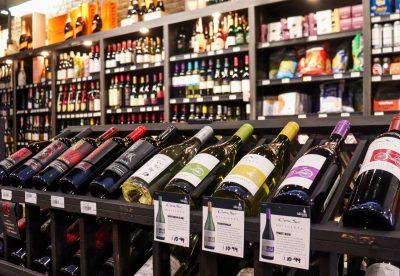Question 3 on the 2022 Massachusetts ballot will address liquor licensing and regulations on liquor stores, increasing the limit for the total number alcohol licenses per retailer but also specifically capping the number of “all-alcohol beverages” licenses.
The limit on the total number of alcohol licenses would gradually increase from nine to 18 in 2031. Retailers would be limited to seven “all-alcohol licenses,” unless they already have more.

Robert Mellion, executive director of the Massachusetts Package Association, the organization that filed Question 3, said voting yes on the question will offer “convenience, but does so safely.”
“The purpose of Question 3 was to address the consumer’s desire for increased convenience, but to do it safely in a way that protected locally owned businesses and the communities that they serve,” Mellion said.
Mellion said, over the past few years, Massachusetts has seen a rise in liquor license transfers, alcohol-related legislation and chain stores, adding that legislation filed over the past year, pushed by large chain stores, has threatened to repeal the current liquor licensing system.
“We’ve been seeing local stores across the state headquartered in Massachusetts, they’re evaporating, they’re going away,” Mellion said.
Ryan Kearney, general counsel for the Retailers Association of Massachusetts, an organization that opposes Question 3 but does not actively campaign against it, said the bill is merely a “protectionist measure,” and access to liquor will “remain unchanged.”
“It’ll make a small increase in availability across Massachusetts … we’re focusing on a true reform of the licensing structure,” he said. “I don’t know that there’s gonna be that major of an impact based on this proposal.”
Additionally, if passed, the ballot question would allow retailers to accept out-of-state licenses as identification and would disallow self checkout of alcoholic beverages.
Mellion and Kearney said allowing out-of-state licenses to be used as forms of identification was a “fix” and a “protection,” respectively. However, Kearney said self-checkout sales are already monitored.
“The idea that these folks are not taking the requirements to make sure that folks that are not purchasing underage or are not selling to folks that are inebriated,” Kearney said. “We feel like that’s a bit of an alarmist concern.”
Ballot Question 3 would also change how fines from the Alcohol Beverages Control Commission are assessed, now being based on total retail sales rather than just alcohol sales.
“We make it so that there is a more of a deterrence factor for stores not to sell it illegally, particularly these food stores,” Mellion said.
Kearney said he believes the ballot question to not be the end of the debate, and depending on a waiting period, another ballot question would be possible.
“I’ve heard from a number of stakeholders that they plan to revisit this next session,” Kearney said. “It remains to be seen whether or not that the way that that ballot question is formed or drafted as to whether or not it would be kept off of the next ballot.”
However, Mellion said Question 3 acts as a “really strong defense” against future bills filed to change alcohol rules and regulations to increase liquor licenses.
“They can spin it any way they want with the public, but it’s the same thing as far as the law is concerned,” Mellion said. “So I want to have that case in court because I think we’re going to prevail.”

















































































































